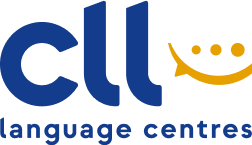Self-employed status in Belgium
Who can become independent?
Any adult of Belgian nationality, from a country in the European Economic Area (EEA) or from another country with a work permit/professional card.
What are the different types of self-employed status?
- The most common status is that of self-employed individual (sole proprietorship).
- You can be self-employed on a principal basis (as this is your only professional activity) or on a complementary basis (this status enables you to carry out an activity that complements an employee’s activity).
- You can also opt to set up a company.
Individuals (Sole proprietorships)
A sole proprietorship is the simplest way to become self-employed:
- it does not require the drafting of articles of association or a minimum start-up capital;
- low set-up and running costs;
- you can get started quickly;
- you’re the only one in charge, and you can take the decisions you need to make to run your business without having to consult other partners;
- as a general rule, simplified accounting is required.
Legal entity (Company)
The formation of a company requires, depending on the case :
- the intervention of a notary;
- minimum capital ;
- a financial plan ;
- drafting articles of association ;
- an auditor’s report (e.g. in the case of a contribution in kind).
What is a self-employed principal?
A self-employed person carries out a lucrative professional activity that does not bind him or her to an employer under a contract of employment. The freelancer is, in a way, his own boss.
The self-employed worker is also considered self-employed for social security purposes. Unlike employees in the private or public sector, they must therefore join an insurance fund and pay social security contributions. He will also have to join a mutual insurance company.
In addition to these obligations, as a self-employed person you have certain rights in terms of family benefits, sickness and disability insurance, maternity insurance, pensions and bridging rights.
Most CLL trainers are self-employed.
What is complementary self-employment?
As a self-employed worker, you can choose to carry out your activity as a sideline, if :
- in addition to your self-employed activity, you also carry out another professional activity on behalf of an employer;
- or, as a self-employed person, you also receive replacement income from another professional activity as a salaried employee or civil servant which is no longer being exercised.
Financial aspects
In Belgium, the personal income tax scale ranges from 25% to 50%.
Here’s an example of how a self-employed person’s net income is calculated:
- CLL pays an hourly rate, including all taxes, for your services;
- this amount is multiplied by the number of hours you work for the CLL (the CLL also offers one-off assignments which are subject to specific conditions);
- to this amount, you may add the cost of freelance services for other customers;
- this gives you a total gross annual income;
- depending on the amount of this total gross annual income, you must pay social security contributions (payable quarterly);
- you can deduct from your remaining income a range of expenses required to carry out your profession (car expenses, travel, internet, home office, office equipment, etc.);
- the result is subject to tax, which is progressive, depending on the level of your income.
Is self-employment complicated to manage?
Managing a self-employed business is relatively easy. However, if you wish, you can call on the services of an accountancy firm to assist you with your accounting, VAT and tax obligations.
An alternative: “portage salarial” companies
Portage salarial allows trainers to manage and declare their services through an organisation (the “société de portage”). The CLL remains the mission giver.
If you’re just starting out as a trainer and don’t give many hours of lessons at the beginning, you can “invoice” your services via a “portage” company. In this case, the “société de portage” takes care of the administrative formalities, such as the immediate declaration of employment (Dimona), the contract, social documents and so on. The “société de portage” becomes your employer. The CLL is the mission provider.
According to our calculations, self-employment is generally more attractive financially if you work an average of more than 8 hours a week.
If you wish, CLL can also help you choose a portage company.
Special case of self-employed people living abroad
Limosa is the online declaration for foreigners coming to work in Belgium temporarily.
Do you live abroad, invoice your services with a foreign VAT number, and occasionally give face-to-face language courses in Belgium (but do not live permanently in Belgium)? In this case, you must register with Belgian social security for the self-employed by submitting a “LIMOSA” declaration. It’s a simple, no-cost administrative formality that you can complete in just a few clicks at www.limosa.be.
The aim of the Limosa declaration is simply to guarantee rapid identification of foreign self-employed workers providing services on Belgian soil.


